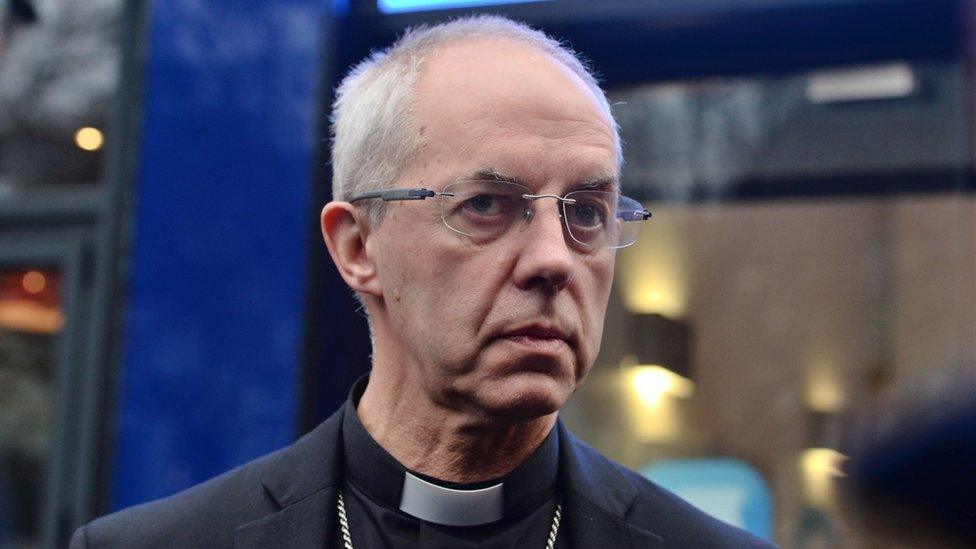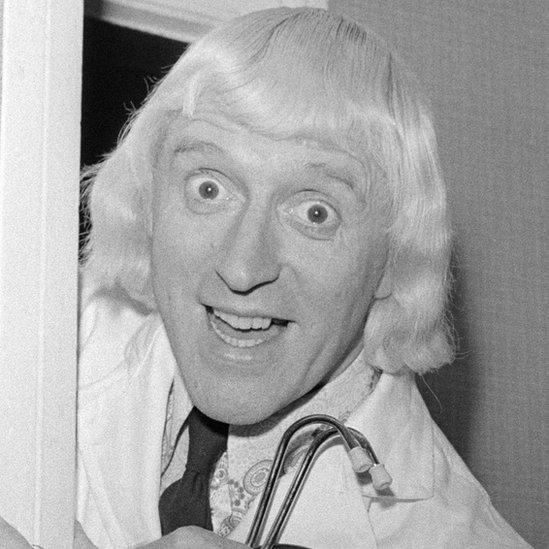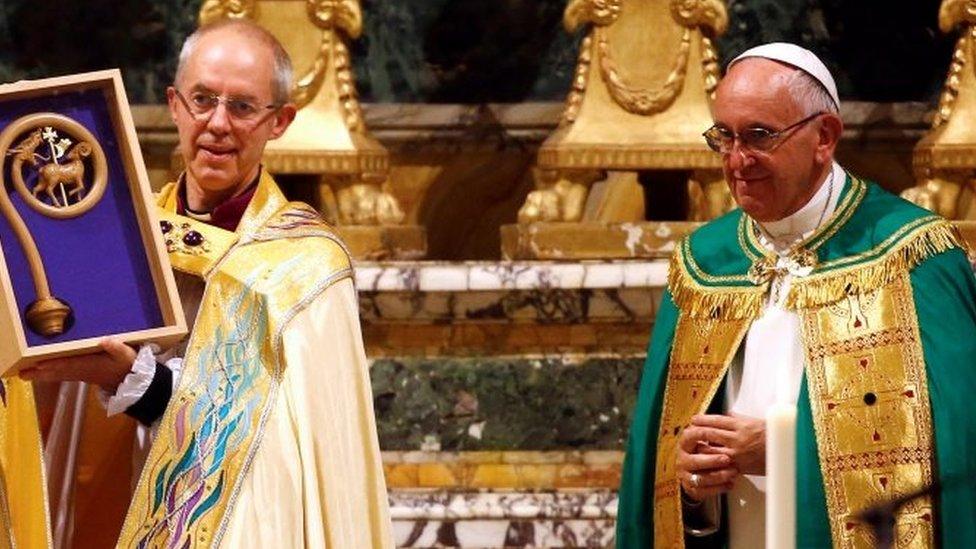Archbishop criticises BBC response to Jimmy Savile's crimes
- Published

Justin Welby criticised the BBC's integrity
The Archbishop of Canterbury has criticised the way the BBC handled sexual abuse by Jimmy Savile.
The Most Rev Justin Welby said the BBC had not shown the same integrity over accusations of child abuse that the Catholic and Anglican churches had.
Abuse survivors disputed that, saying their experience was of "long years of silence, denial and evasion".
The BBC said it did not recognise the accusation against the corporation, and had acted transparently over Savile.
The archbishop was invited to contribute to a series on BBC Radio 4's Today programme, looking back at Britain over the past 60 years, to mark the programme's anniversary.
Dark areas
He said: "I think we are a kinder society more concerned with our own failures, more willing to be honest where we go wrong in most of our institutions."
But he added "there are still dark areas".
When asked which, Mr Welby replied: "If I'm really honest, I'd say the BBC is one.
"I haven't seen the same integrity over the BBC's failures over Savile as I've seen in the Roman Catholic Church, in the Church of England, in other public institutions over abuse.
"We may be proved wrong about that but you know that's one area," he said.

Jimmy Savile abused 72 victims connected to the BBC
A group of six victims of abuse in the Church of England said they did not recognise the archbishop's description of "integrity" from their own "bitter experience".
"Far from the 'rigorous response and self-examination' he claims, our experience of the church, and specifically the archbishop, is of long years of silence, denial and evasion.
"The Church of England needs to confront its own darkness in relation to abuse before confronting the darkness of others."
Justin Humphreys, from the Churches Child Protection Advisory Service, said it was not always helpful to make comparisons between institutions.
"I think we run the risk of being accused of pointing the finger whilst we're not looking at our own backyard.
"However, I think it is reasonably well known that there are parallels that can be drawn between both the church, the BBC and other institutions that have been looked at for the same reasons as they have."
A retired judge, Dame Janet Smith, concluded in February 2016 that Savile had 72 victims who were connected to the BBC.
The offending took place from 1959 to 2006, mostly in the 1970s on the Top of the Pops programme, and the corporation missed opportunities to stop the abuse.
A BBC spokesman said of the archbishop's comments: "This isn't a characterisation we recognise. When the Savile allegations became known we established an independent investigation by a High Court judge.
"In the interests of transparency, this was published in full. We apologised and accepted all the recommendations.
"And while today's BBC is a different place, we set out very clear actions to ensure the highest possible standards of child safeguarding.

The Church of England and Catholic Church have been connected to abuse
Senior figures in both the Anglican and Catholic churches have been accused of abuse in recent years.
A Vatican official, Cardinal George Pell, has been charged with sex offences in his native Australia, but vehemently denies any wrongdoing.
An independent review report of the crimes of the former Bishop of Gloucester, Peter Ball, published in 2017 found senior figures in the Church of England had colluded with Ball.
Mr Welby's predecessor as Archbishop, Lord Carey, resigned from an honorary position in the Diocese of Oxford following the report.
A Lambeth Palace spokeswoman pointed out that since Mr Welby's appointment as archbishop, safeguarding of children and vulnerable adults had been made the "highest priority" and there were now "robust" policies, independent audits and dedicated training.
She added: "The archbishop believes this level of rigorous response and self-examination needs to extend to all institutions, including the BBC."
'You just shudder'
In his Radio 4 interview, Mr Welby also referred to the dispute about men's and women's pay at the BBC, pointing out that although women had only recently become bishops, senior men and women in the church now received the same pay.
He said: "We just think it's normal now whereas you listen to old radio programmes or TV programmes and you just shudder.
"I think with that sense of recognition of the importance of the individual of minorities, of profound care for minority rights, whether it's disabilities, black and minority ethnic, LGBT, different things, those are really healthy things."
A BBC spokesman said: "The national gender pay gap is 18%. The BBC's is under 10% and we have committed to closing it in 2020.
"The Church of England's own published pay gap for non-office holders is 41%.
"We all collectively have more work to do, to sort an issue that is a problem across the vast majority of organisations."